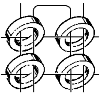Ferranti Argus 400
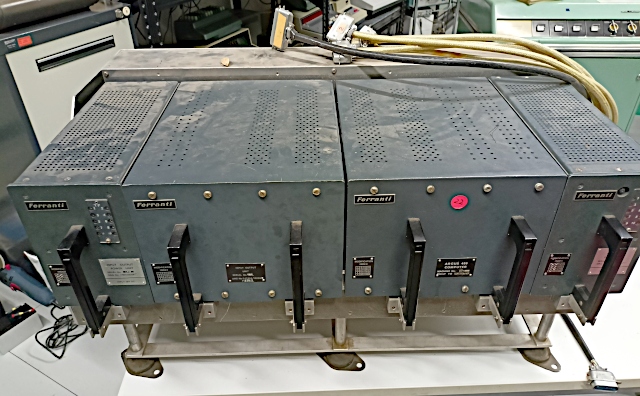
| Manufacturer: | Ferranti Ltd. |
| Type: | Argus 400 |
| Year: | 1965 |
| Serial no.: | 105 |
| Technology: | DTL (MicroNOR II) 24 bits serial CPU, core memory |
Yet another computer from the category Probably the last of its kind
Up to now (2023), not much technical information can be found on the Argus
family. And no other specimen of the Argus 400 is known to exist.
The Argus family from Ferranti was originally designed for military and rugged usage, as can be seen here with the aircraft modules. Many systems were used on airplanes and ships, but also for normal commercial and scientific use.
Some details
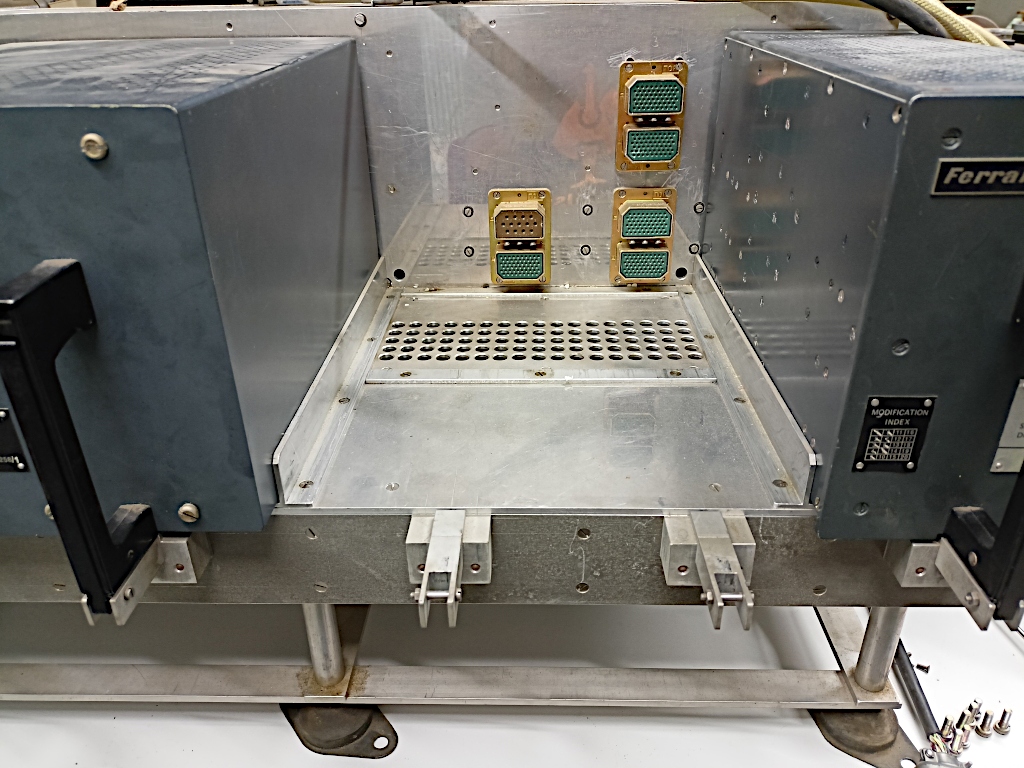
The module carrier with pulled-out CPU
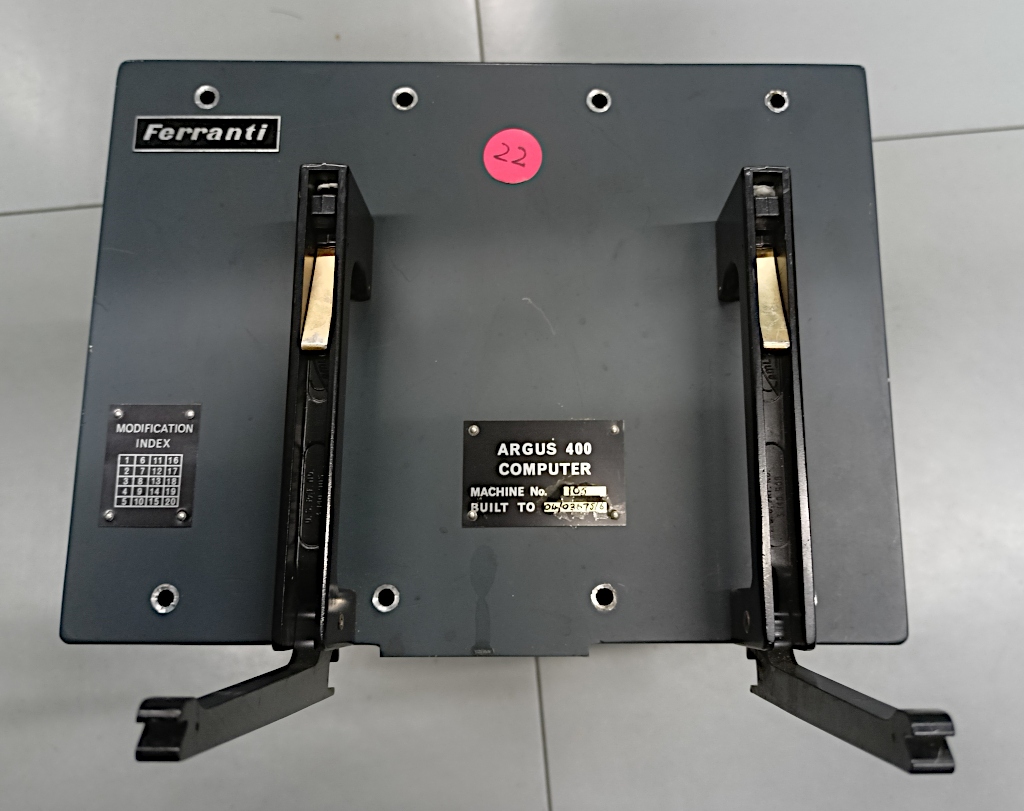
The CPU module
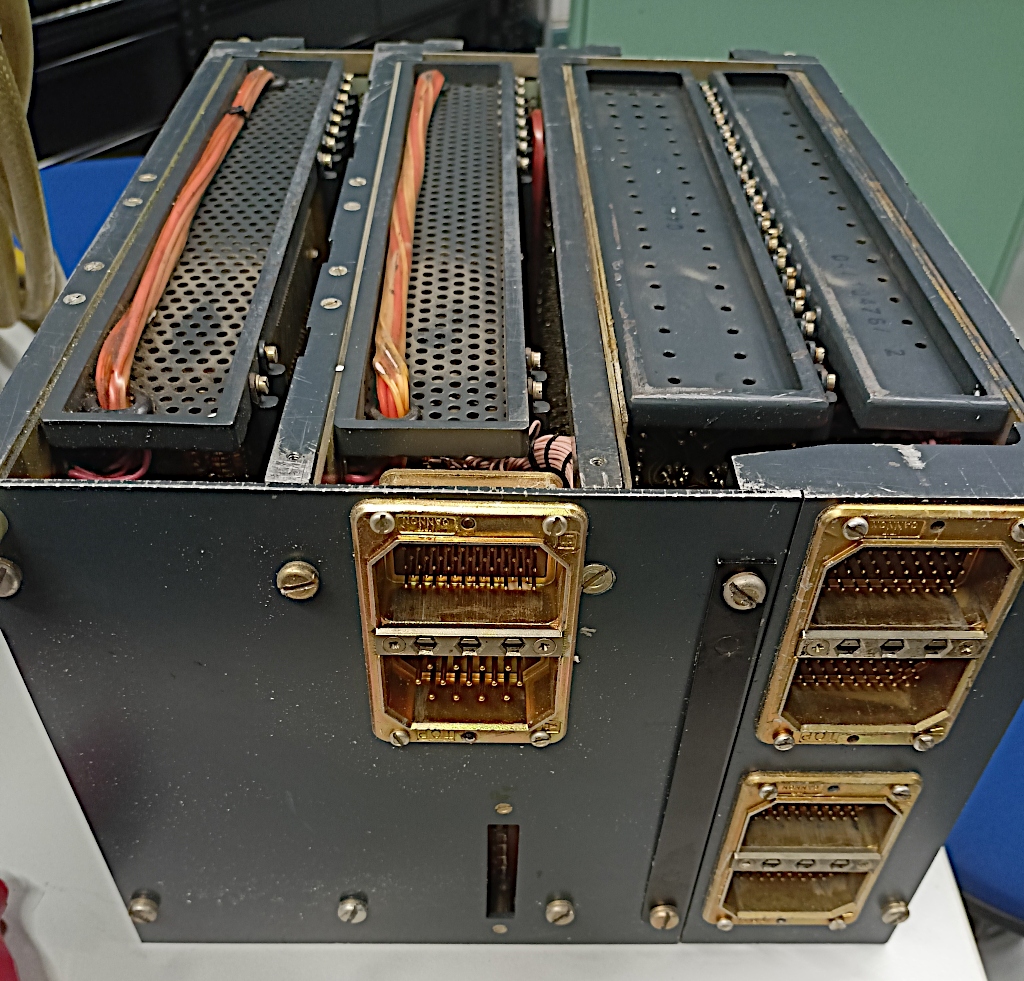
The back side of the CPU module with the connectors
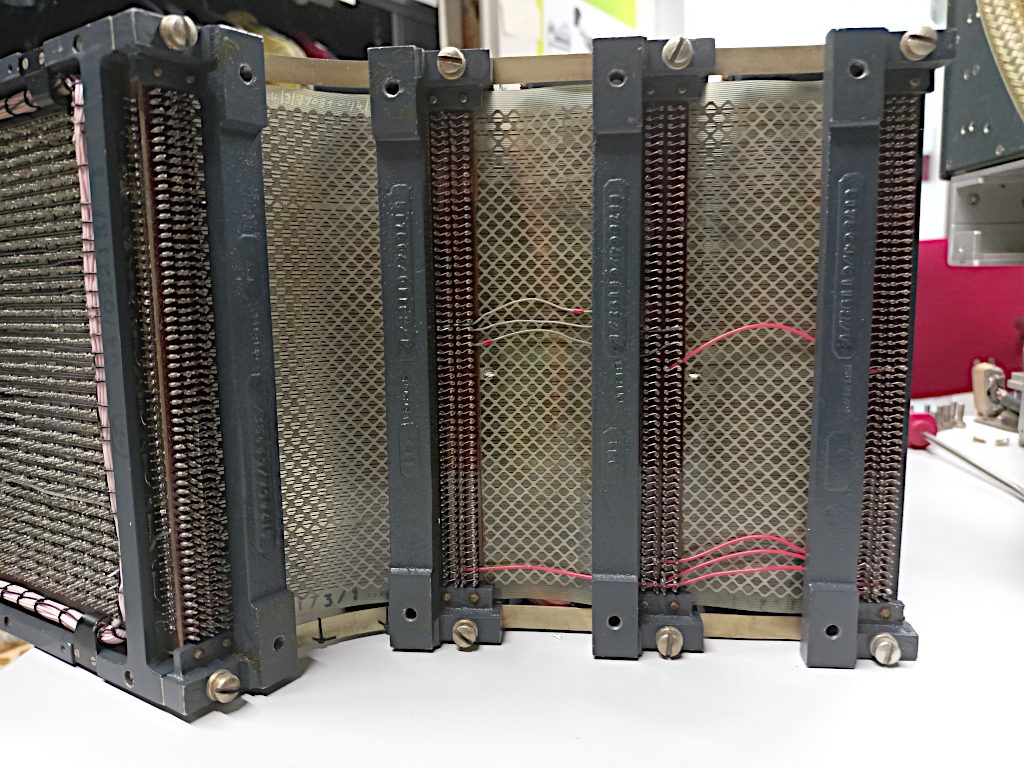
The backplane in the CPU module
The backplane is made of flexible printed mylar sheets. This makes it possible to open the CPU like a book. But you won't get much further. Except for some possible measurements, not much can be done. The CPU boards can be pulled out of the backplane, but then that was it.
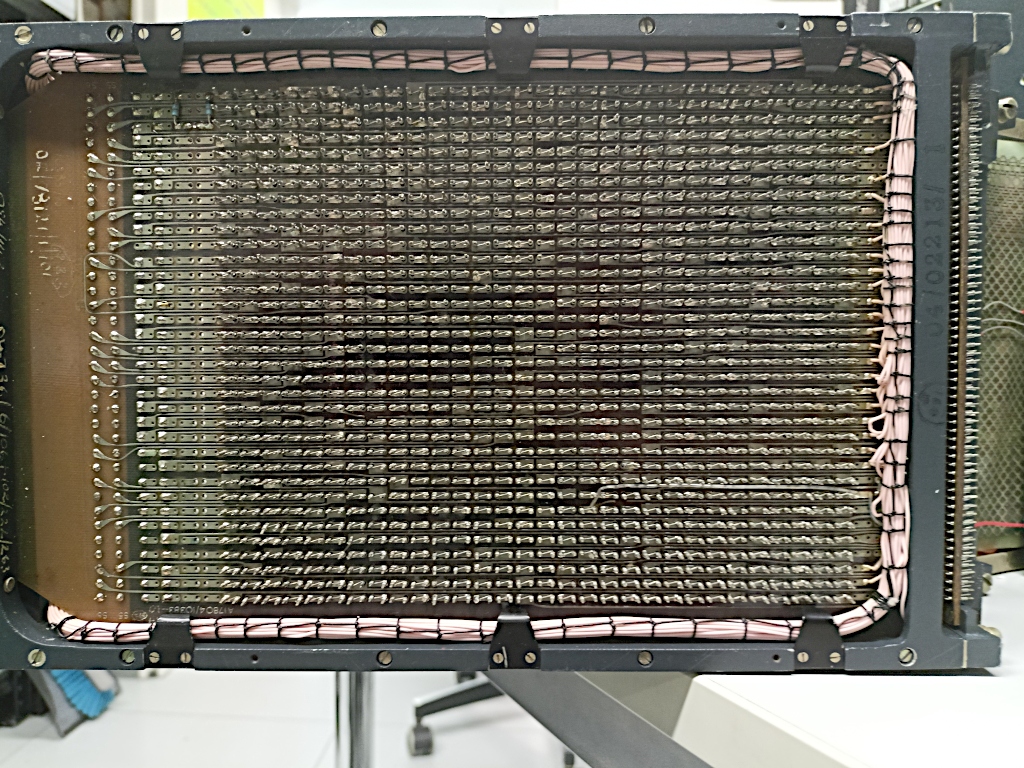
The back side of a CPU board
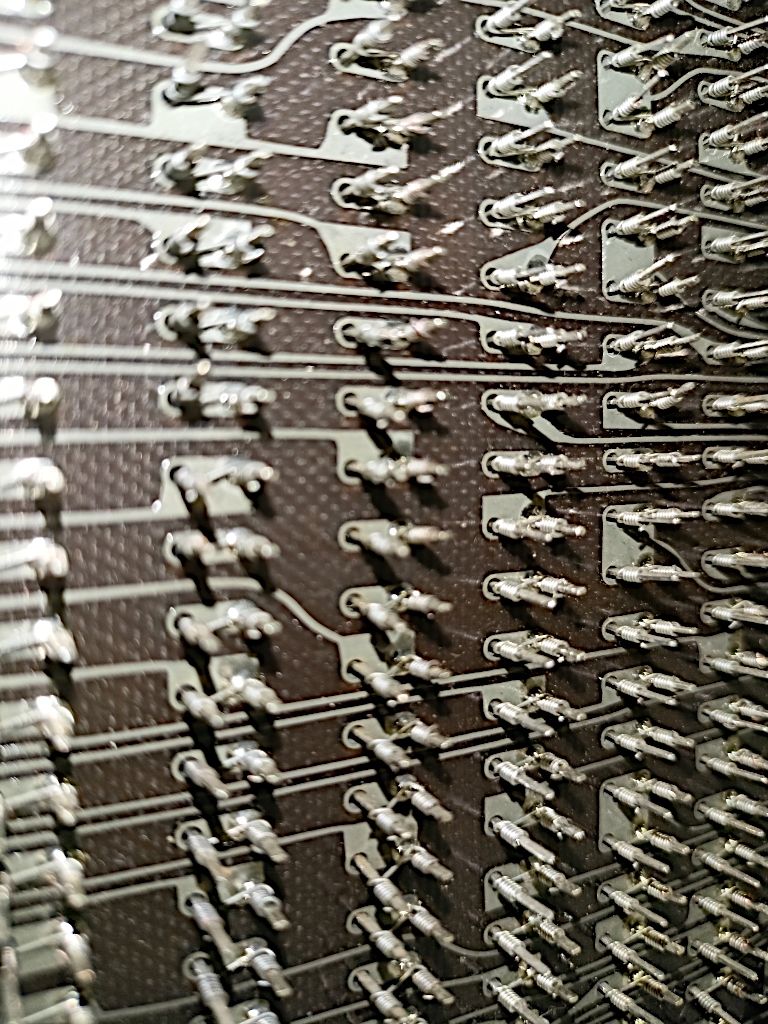
The wire-wrap wiring in the CPU
And on the two pictures above you can see the reason why. On each of CPU boards there are many smaller circuit boards that contain the MicroNOR ICs. And these small boards can not be pulled. The pins coming out are both wrapped and soldered to the backplane! So in case you need to repair such a board, you either have to bring much time and patience or simply swap the entire board.
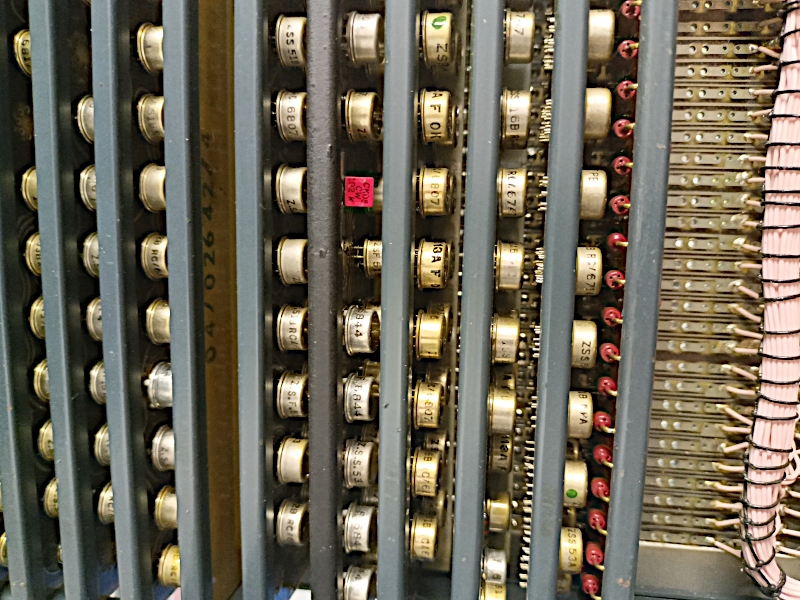
The MicroNOR-II ICs
A view from the side on the Ferranti integraded circuits in 8-pin TO-5 cans.
In short they contain a DTL NOR gate (hence MicroNOR). Compared to the
upcoming TTL logic from Texas Instruments, these gates are both faster and
have a higher noise immunity.
Designed for 4.5V logic levels (before TTL came out), they could be run with
5V without issues to be combined with TTL logic.
